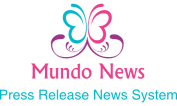Audio books benefits – sidestep unfamiliar dialects or accents, old english, and old-fashioned literary styles : Is your family bilingual, or do your kids take language lessons? Tell us below; we’d love to know! When she came to America in 1921, Pura Belpre carried the cuentos folklóricos of her Puerto Rican homeland. Finding a new home at the New York Public Library as a bilingual assistant, she turned her popular retellings into libros and spread story seeds across the land. Today, these seeds have grown into a lush landscape as generations of children and storytellers continue to share her tales and celebrate Pura’s legacy.
Try to choose at least some books that have more idiomatic language to increase your ability to know and use lingo appropriately. One way to do this is to choose contemporary titles rather than classics. It’s more likely that a current bestseller set in the present will contain more current idioms than a book written in the last century! Classics are still a great way to go with bilingual texts, especially since they tend to be so widely translated and easier to find in bilingual format-just make sure to mix it up a bit.
Without attacking any church in particular, it spares none; it is more particularly directed towards the current attitudes and beliefs in the West, even if it is not limited to it. Throughout the chapters the apprentice guru learns how to find his revelation, or how to make prophecies and miracles, etc. Of course, the future guru also learns to do what every cult leader does with talent: how to shear the flock. If your church scores more than 3 positives, run away before drinking the Kool-Aid. The linguistic level is not high first because the audio book uses mainly the present of the indicative, then because the religious vocabulary varies very little from one language to another. And, I should say, from one religion to another.
Learn New Vocabulary. Some people raise objections that audiobooks are destroying the time-honored literature. Nevertheless, their objections are useless. Audiobooks contain all flavors of printed books. It is not futile to say that audiobooks have some additional benefits. Students listen and learn new vocabulary. Audiobooks are very productive for students who want to become an essay writer. Discover more information at Bilingual audio books English/Chinese and English/Hindi.
If money is available for purchasing audiobooks, it is important for librarians and teachers to do their homework before buying. Single-author unabridged audiobooks tend to be the best, though some dramatizations (such as Philip Pullman’s His Dark Materials trilogy, read by the author with a cast of more than 40 British actors) can be excellent. There are many sources of audiobook reviews readily available online, including School Library Journal. [Note: The Association for Library Service for Children also publishes an annual Notable Children’s Recordings list.]
Increases word exposure and improves vocabulary. When students are offered the opportunity to have audiobooks in the classroom, their world can finally open up. Having books read aloud helps these struggling readers move beyond the decoding and right into learning. The more words they learn and incorporate into their knowledge-base, the better able they will be to access grade-level materials.
The children listened…. and their parents too. Listening was not felt as a chore but as a delight. So, we decided to prepare bilingual audiobooks from “classical” works. Then, we thought we should publish contemporary short works in at least 2 languages (by the way, if you are the happy author of a work up to 25.000 words, prepare to submit it.) We propose mostly human voices, because to listen to synthetic voices feels… synthetic. But, whatever their accent, the synthetic voices offer a faultless pronunciation, which is important for the student. So, we prepare some sound files with synthetic voices. Discover extra details at Language Learning for the Blind.
